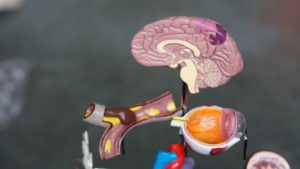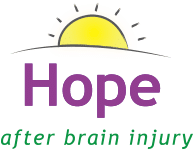It is 2020, and the question remains, why are so many mild traumatic brain injuries still misunderstood? Despite extraordinary medical advancements, countless patients can travel from doctor to doctor, struggling to sort through the health crisis suddenly upon them. It takes years for changes in the medical system to become mainstream. Conventional imaging such as CT scans and MRIs may be unable to detect a mild to mod erate brain injury unless visible bleeds or damage to brain tissue has occurred.
erate brain injury unless visible bleeds or damage to brain tissue has occurred.
Corpus callosum damage within the brain is frequent among TBI survivors. Patients with a recent head injury and a clear CT scan can receive help from contacting a neurologist who can order an MRI with a DTI report. DTI technology has improved over the last five years. The “whole-brain analysis” can reveal significant findings within the brain, such as thinning of the corpus callosum and reduction in white matter volume. It is common where both conventional images may show no results, puzzling healthcare professionals as their patient’s symptoms progress, worsening over time.
Although many will recover on their own from mild concussions, millions worldwide may suffer from delayed symptoms such as looming neuroendocrine deficiencies, micronutrient imbalances, and chronic immune problems. Neuroinflammation, post-concussion syndrome, and PTSD are frequent among brain injury survivors. Underlying vision injuries after a traumatic brain injury can be associated with sensory integration difficulties and disruption to the entire nervous system. Several brain injury conditions can cross over one another, making it difficult for health professionals to recognize, sort, diagnose, and treat. It takes a combination of specialists to achieve results.
Patients with mild traumatic brain injuries can feel misunderstood, face stigma, and difficulty finding the right treatments promptly. When patients are unable to find the support, understanding, and help they need to achieve recovery, they could be at risk for further health decline, job loss, and relationship challenges. Reaching out to local or national brain injury non-profits can provide patients and their families with helpful resources, education, and connections to health professionals in their area.
With the most advanced medical system in the world, it is difficult to understand why so many patients report feeling misunderstood as they slip through the cracks past highly skilled medical professionals whose educational backgrounds are extraordinary. Unknowingly to many of us, the research on the effects of traumatic brain injury is ongoing, and countless medical schools were not aware of all the consequences patients face after an injury. Current information from health innovators, science, and medical research organized through millions of dollars in grants, along with physicians and brain injury survivors advocating for change, is helping to reshape the future for traumatic brain injury recovery. Conventional and alternative care advancements are promising, bringing hope to many survivors throughout the globe.

Leave A Comment
You must be logged in to post a comment.